Search
Search Results

Definition
Odin
Odin (Old Norse: Óðinn) is the main god in Norse mythology. Described as an immensely wise, one-eyed old man, Odin has by far the most varied characteristics of any of the gods and is not only the deity to call upon when war was being prepared...
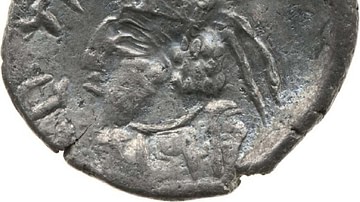
Definition
Mithra
Mithra is the Persian god of the rising sun, contracts, covenants, and friendship. He also oversaw the orderly change of the seasons, maintained cosmic order, and was responsible for bestowing divine grace on kings, legitimizing their rule...
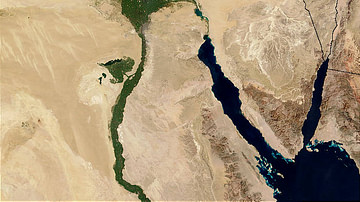
Definition
Nile
The world's longest river, located in Egypt, the Nile flows 4,132 miles (6,650 kilometres) northward to the Mediterranean Sea (a very unusual direction for a river to take). It was considered the source of life by the ancient Egyptians and...

Definition
Script
Script is the written expression of a language. Cuneiform, the first script, was invented in Sumer, Mesopotamia c. 3500 BCE, hieroglyphics sometime prior to the Early Dynastic Period in Egypt (c. 3150-2613 BCE), and Sanskrit in India during...
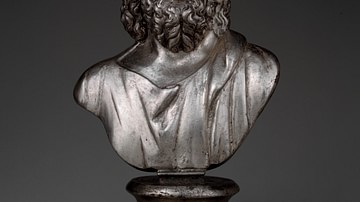
Definition
Serapis
Serapis is a Graeco-Egyptian god of the Ptolemaic Period (323-30 BCE) of Egypt developed by the monarch Ptolemy I Soter (r. 305-282 BCE) as part of his vision to unite his Egyptian and Greek subjects. Serapis’ cult later spread throughout...

Definition
Tomb
A tomb is an enclosed space for the repository of the remains of the dead. Traditionally tombs have been located in caves, underground, or in structures designed specifically for the purpose of containing the remains of deceased human beings...
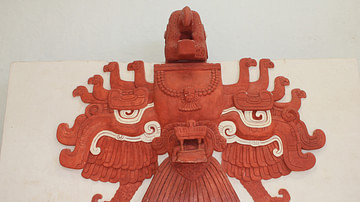
Definition
Popol Vuh
The Popol Vuh is the story of creation according to the Quiche Maya of the region known today as Guatemala. Translated as `The Council Book', The Book of the People' or, literally, `The Book of the Mat', the work has been referred to as "The...
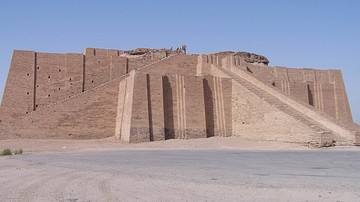
Definition
Nanna
Nanna (also known as Nannar, Nanna-Suen, Sin, Asimbabbar, Namrasit, Inbu) is the Mesopotamian god of the moon and wisdom. He is one of the oldest gods in the Mesopotamian pantheon and is first mentioned at the very dawn of writing in Sumer...
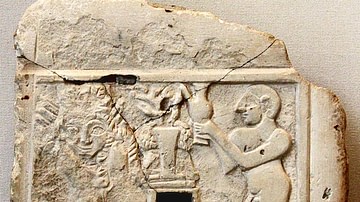
Definition
Ninhursag
Ninhursag (also Ninhursaga) is the Sumerian Mother Goddess and one of the oldest and most important in the Mesopotamian Pantheon. She is known as the Mother of the Gods and Mother of Men for her part in creating both divine and mortal entities...

Definition
Germ Theory
The germ theory, which emerged in the late 19th century, demonstrated that microscopic germs caused most human infectious diseases. The germs involved included bacteria, viruses, fungi, protozoa, and prions. Louis Pasteur (1822-1895), a French...